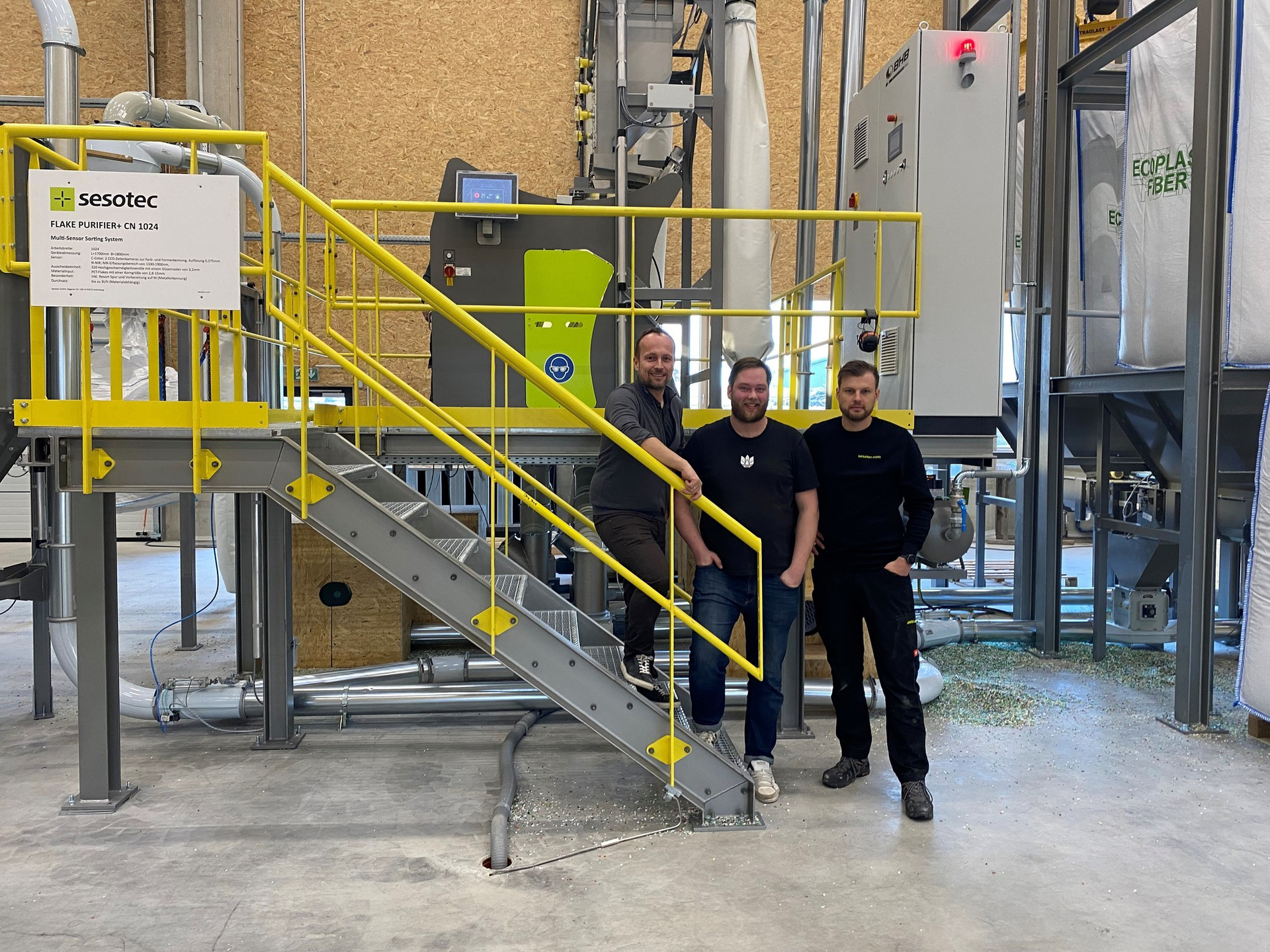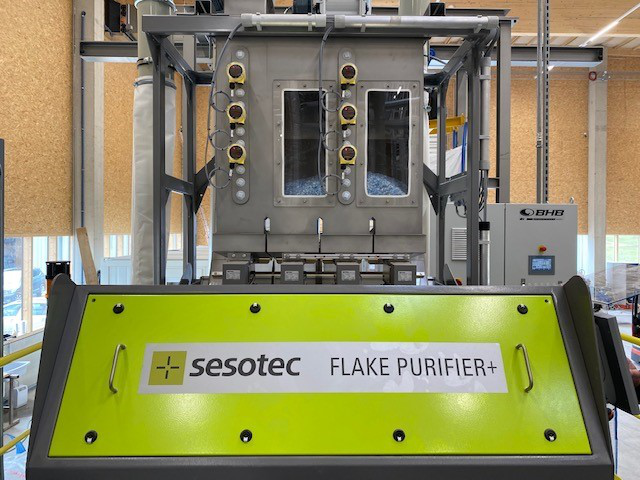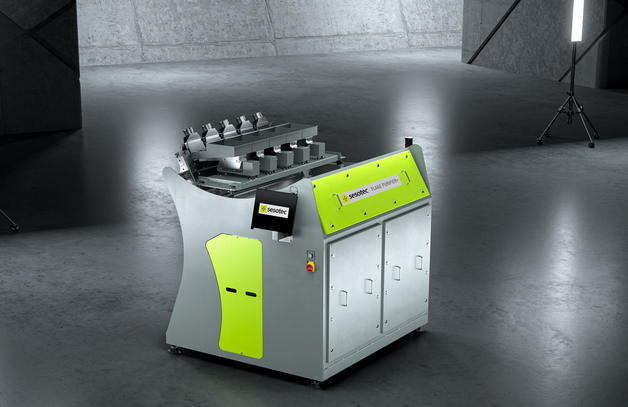Resource scarcity, environmental pollution, and global warming require a shift towards sustainable business practices. The solution is a circular economy, where waste is used as a valuable source of raw materials. Regarding plastics, the EU has already set recycling targets: plastic waste should be reusable or recyclable in a cost-effective manner, thus becoming valuable secondary raw materials.
A prerequisite for a wide range of applications for recyclates is the pure and contaminant-free processing of the raw material. To achieve the EU recycling targets in the plastics sector, PET recycling plays an important role. This is exactly where the newly founded Austrian company Mission PET GmbH comes in: PET recycling experts have come together on the premises of the Ökopark of the company Zellinger in Feldkirchen-Gerling/Austria and have taken on the challenges of their circular economy mission. Mission PET has set itself an annual capacity target of 14,000 tons of rPET granulate. In doing so, the company serves not only the classic bottle-to-bottle application but also other areas of application for the rPET granulate.
The challenge: Highest demands on rPET material for diverse applications
Mission PET sees the mission of a circular economy in the consistent implementation of PET recycling. The range of applications for recycled PET material is diverse. However, only high-purity rPET material also meets the requirements equivalent to those of new material. The demands on the recycling process for processing the PET material are accordingly high. Optimal decontamination and material cleaning of the PET raw material are prerequisites for maximum purity of the final product.
The solution: Highest precision in material sorting
Through the collaboration of mainly regional and professional project partners, the Mission PET facility was able to start operations in March 2023. As an experienced project partner in the field of sorting technology, Sesotec supplied the highly precise sorting system FLAKE PURIFIER+, which ensures the highest purity in flakes. In addition, Sesotec planned the appropriate steel construction, silo, plant control, and BigBag stations for mixing the input fraction around the sorting system. Mission PET extracts the highest quality granulate from pre-sorted, shredded, and washed PET bottles, which can be used in a variety of applications, even in the food sector.
The mixing of the PET input material takes place via the BigBag stations supplied by Sesotec to obtain uniform fractions. The highly precise sorting system FLAKE PURIFIER+ then reliably detects and ejects incorrect plastics, incorrect colors, and even metallic impurities. The re-sorting track in the FLAKE PURIFIER+ even makes it possible for already sorted material to go through the sorting process again. This results in minimal loss of good material while achieving high throughput. The obtained, highly pure PET material is then processed into granulate, which can be used for the production of various products instead of newly produced PET.

The customer benefit: Highest quality for the mission circular economy.
"We want to provide our customers with sustainable food-grade rPET granulate. Sesotec multi-sensor sorting systems guarantee us and our customers the best decontamination and material cleaning," says Markus Huemer, Managing Director of Mission PET GmbH.
Download this case study as a document.


